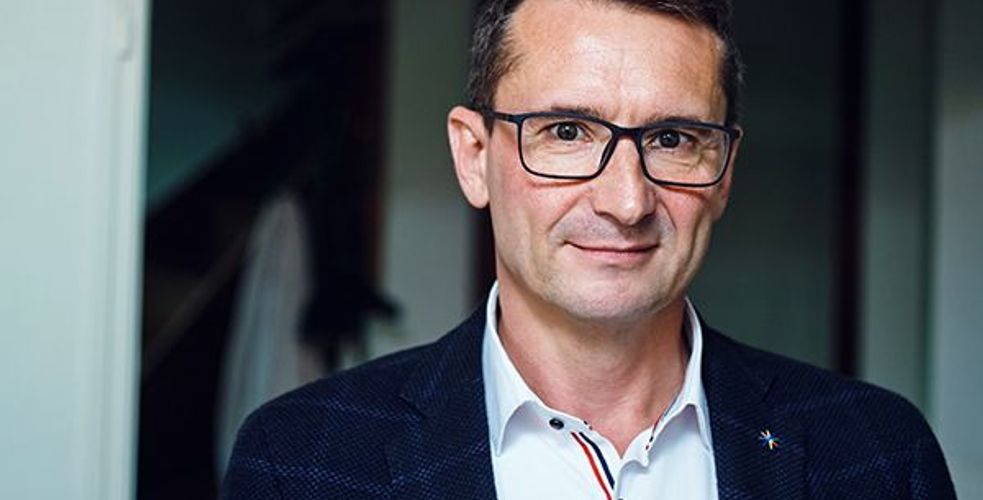BPO providers are ready to break commercial ties with prestigious clients, due to outdated prices

"We are not breaking off business relationships with our customers, but we are prepared to go that far," said the CEO of one of the world's leading customer experience BPO providers. Willing to defend their already meager margins, some BPO and CRM providers have begun negotiations with some of their customers to rationalize their prices and get them reevaluated. The increase in the minimum wage, the price of energy, and the requirements to create and boost EBITDA for their shareholders combine to sometimes cause contract breaks or renegotiations, initiated by the subcontractor. In other industries, collaboration conditions are also being reexamined, regardless of the prestige of the client.
We shall call him MP. CEO of one of the world's leading BPO providers, MP has returned to European business after restructuring a key geographic area of the company that employs him. His nearly thirty years in the business have taught him things as basic as how to look at an income statement for a customer service or telemarketing operation, in addition to the NPS wanted by his client, who dreams of seeing the latter soar".
"For years, some of our French or pan-European customers have asked us to carry out increasingly complex tasks, taking advantage of the competition between major players, without always accepting to take into account the cost increases that are, quite simply, salary and local charges. In Turkey, for example, or in South America, we had to deal with two successive increases in the minimum wage of 40% each, or 15% in South America. In France, teleoperators also are in demand of a revaluation of their remuneration conditions. So I have asked all our business unit directors and key account managers to start negotiations with some of our customers so that we might without difficulties carry out the services that are requested of us. And in some cases, we decide to stop the collaboration on our initiative. Generally, a task force is then set up at our client when they realize that we are not kidding."
Laurent Niquet, former Teleperformance executive and now customer operations director at Eutelsat, remembers having done the same thing at Techcity Solutions (a subsidiary of Teleperformance) a decade ago when one of his clients asked for a line of services on which the operating conditions had deteriorated over time: "After explaining to him that we wanted to revalue our rates, my interlocutor told us that he understood the justification but that he had not included it in his budget. So we ended the collaboration, finding a backup solution for him with a partner. This negotiation was difficult but it was essential, and it proved profitable: it restored a form of respect between us; he re-consulted us and worked with us later, on viable rate bases."
"For years, the competition between a few major BPO players, such as Sitel, Webhelp, Teleperformance, B2S, etc., has enabled some brands to play skillfully between suppliers, knowing what the impact of their brand and an announcement of collaboration entails. Nespresso, for example, was one of these brands ; Frédéric Jousset couldn’t help but feel crestfallen after Webhelp was abandoned in favor of a new provider. "The quality of our service has earned us awards and recognition but those who created it were forgotten." Are providers just interchangeable?
A few months ago, Zaion, another major player in the sector decided to no longer carry out POCs, those famous Proof Of Concepts. Large companies are indeed fond of them, and why they shouldn’t? They offer proof, free of charge, of the effectiveness of a new device or technology: "Our callbots effectively replace SVI, we have a lot of references and eloquent use cases. There are few legitimate reasons to ask for or set up free POCs," says sales director Stéphane Fontana.
"Times have changed, they are tough but also bring on everywhere new geopolitics: isn't the Moroccan team in the World Cup semifinals? Teams of telemarketers available are as rare as gold nuggets. "A big brand recently came to us, because the two providers they collaborated with were unable to mobilize more than thirty stationary salespeople in several months, an insufficient number," says Didier Manzari of Comdata Africa. We have been investing for years in the employee experience, to recruit and train our teams; all this has a price."
A famous lawyer, Emmanuel Pierrat, confesses that working for the GAFA and in particular Google is not a walk in the park nor necessarily enriching: "it takes eight to twelve hours of work to fill out all the forms and documents that allow you to be approved as a provider by Google, hours and time not paid. You sometimes have to wait a long time to be paid and, of course, you are conflicted with many other clients as soon as you work for Google.." At the Seattle headquarters, a dedicated team has been created to help consultants and lawyers get listed and paid.
Experienced fifty-somethings such as Gilles Guez at Pro-Direct, Patrice Mazoyer at Comdata returning to the helm of many companies in France or Europe especially in BPO and the growth of players such as Myopla, Outsourcia, Vipp-Interstis, Mezzo which by seasoned entrepreneurs who have survived the 2000s and the crises that followed, denote a strong return to reality and basic arithmetic. "Many tech companies have let themselves and their funders believe that money would always flow, that growth was a permanent state, that there was no need to know how to count, it's the end of the recess in many sectors," adds MP.

So what remains, among some service providers, is to train sales teams in these new necessary and expected behaviors. The Negotiating Prices and Defending Margins module, obtaining profitable agreements, lasts two days and costs 1410 euros at Abilwyays, for example. At ISM, an Abilways department, the director of the Customer Acquisition and Experience department is Sandrine Knellesen, a former historic Teleperformance employee. In that great company, there was never any doubt about the need to monitor the profitability of operations, which probably explains its stature today.
For those who do not like group training or have burned their CPF, we recommend discovering or rereading the chapter on the dialectic of the master and the slave in Hegel's Phenomenology of Mind. In Reader's Digest mode, Hegel explains that there are masters only because there are slaves who accept being slaves. But the slave, because he works, produces, is in contact with nature, which is real. The master is not. Gradually, if the slave is willing to take risks, it is the master who becomes dependent on the slave. Is Hegel as good as Excel, that God whose power has become too big?"
Photo de une : Laurent Niquet - crédit © Edouard Jacquinet






